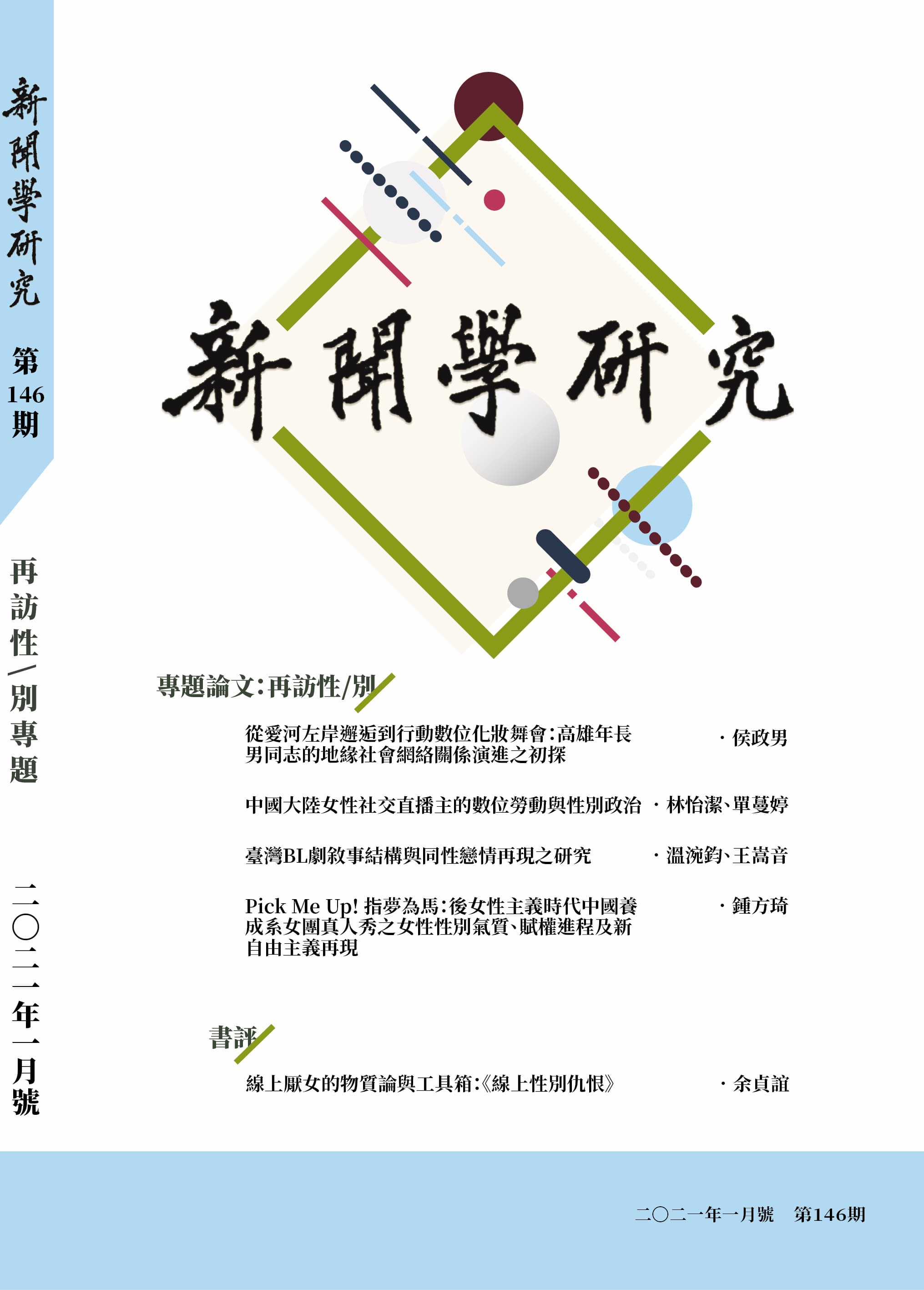前期出版
前期出版
頁數:145﹣191
Pick Me Up! 指夢為馬: 後女性主義時代中國養成系女團真人秀之女性性別氣質、賦權進程及新自由主義再現
Pick Me Up! Taking Dream as a Symbol: Femininity, Empowerment, an Neoliberalism of Chinese Female Trainees in the in the Era of Postfeminism
專題論文
作者(中)
鍾方琦
作者(英)
Zhong Fangqi
關鍵詞(中)
女性主義批判言說分析;後女性主義;真人秀;新自由主義
關鍵詞(英)
feminism; feminism critical discourse analysis; neoliberalism; reality show
中文摘要
2018 年是「中國養成系偶像綜藝元年」,由騰訊視頻、騰訊音樂娛樂集團聯合出品的「偶像女團競演養成類真人秀」綜藝《創造 101》通過一系列本土化改造,投放市場後迅速獲得極高關注度。本研究即以《創造 101》節目為例,採女性主義批判言說取徑為主,輔以後女性主義和新自由主義理論作為分析基礎,探討上述節目背後流動的意識形態與權力結構,進而推斷中國當前的(後)女性主義發展進程。本研究得出以下結論:首先,節目將中國特色傳統文化與現代流行文化結合,呈現出在地化女性性別氣質且追求個性,後殖民主義下的西方特權在中國失效,而中國女性的在地化性別氣質主體意識初見抬頭;其次,女性在打破刻板印象、建立主體性及參與公共領域方面部分「奪權」,中國似乎已經進入後女性主義時代,但女性媒體角色還是以「魅惑」男性的姿態出現,男性霸權下的外表壓力依然存在,只不過轉化為自我物化的趨勢,繼續支配和控制著女性,女性仍然未完全擺脫父權的控制;最後,由於女性主義運動的興起,如今的父權制比以前更加支離破碎,它在社會中與其他形式的權力交織,依舊在現代社會中扮演著無形但具破壞性的角色。
英文摘要
The first nurturing idol variety show in China, Creation 101, was launched in 2018. The show was labelled as an “Idol Girl Group Competitive Reality Show” and quickly gained widespread attention after its broadcast. By employing feminist critical discourse analysis as a method and with feminism and neoliberal theories as a basis of analysis, this paper explores the flowing ideology and the power structure behind the aforementioned program and infers the current feminist development in China. This study draws the following conclusions. First, the program presents a localized femininity with a pursuit of personality, in combination of traditional Chinese and modern popular culture. Which means that the Western privileges under post-colonialism have failed in China, and that the localized gender subjective consciousness of the Chinese female is beginning to rise. Second, the female has a “wrested power” in breaking stereotypes, establishing subjectivity and participating in the public domain, implying that China seems to have entered the post-feminist era. Nonetheless, female characters in the show are still presented as ‘charming girls,’ resembling sexual objects for the pleasure of the heterosexual male viewer. Thus, the male hegemony still exists, only it has transformed into a form of self-materialization among women, continuing to dominate and control the female. Third and finally, due to the rise of the feminist movement, today's patriarchy is more fragmented than it was before. It has intersected with other forms of power in society and still plays an invisible but destructive role contemporarily.
2171次下載



